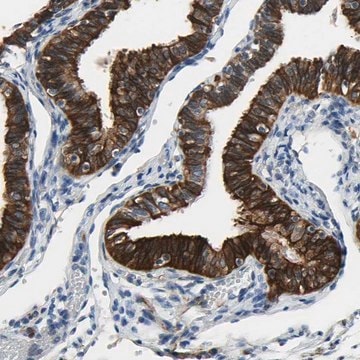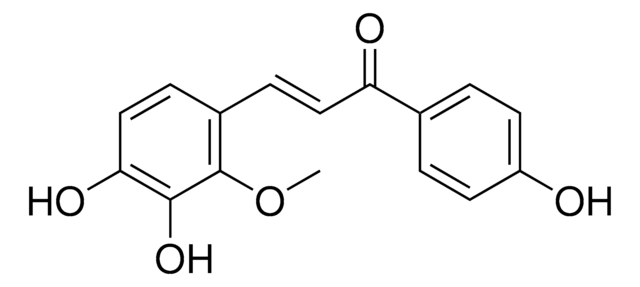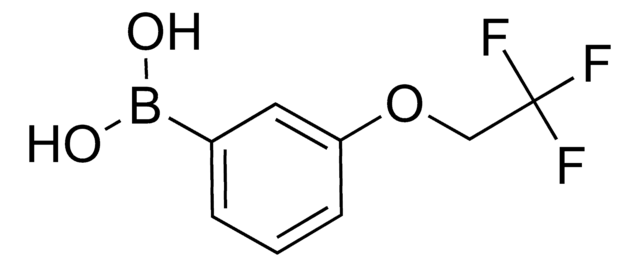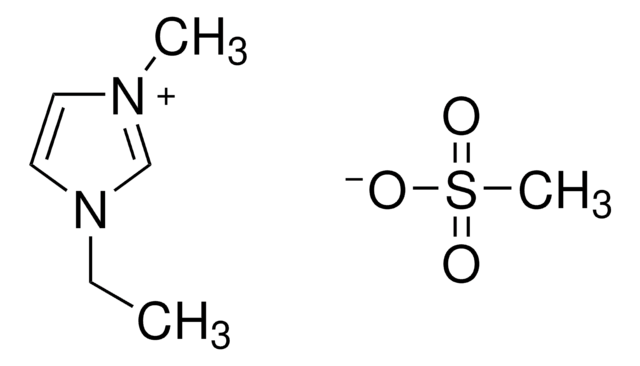推荐产品
生物源
rabbit
品質等級
共軛
unconjugated
抗體表格
affinity isolated antibody
抗體產品種類
primary antibodies
無性繁殖
polyclonal
產品線
Prestige Antibodies® Powered by Atlas Antibodies
形狀
buffered aqueous glycerol solution
物種活性
human
加強驗證
recombinant expression
Learn more about Antibody Enhanced Validation
技術
immunoblotting: 0.04-0.4 μg/mL
immunohistochemistry: 1:50-1:200
免疫原序列
QNLTMTVFQGDGTVSTVLGNGSSLSLPEGQSLRLVCAVDAVDSNPPARLSLSWRGLTLCPSQPSNPGVLELPWVHLRDEAEFTCRAQNPLGSQQVYLNVSLQSKATSGVTQ
UniProt登錄號
運輸包裝
wet ice
儲存溫度
−20°C
目標翻譯後修改
unmodified
基因資訊
human ... SIGLEC9(27180)
一般說明
SIGLEC9 (sialic acid binding Ig-like lectin 9) gene encodes a member of the Siglec (sialic acid-binding Ig-like lectin) family that belongs to the immunoglobulin superfamily (IgSF). Siglecs are type-I transmembrane proteins that are expressed mainly on immune cells. The gene SIGLEC9 consists of seven exons interspaced by six introns and is mapped to human chromosome 19q13.4. The encoded protein spans a length of 463-amino-acids. Siglec-9 has been found to be expressed abundantly in bone marrow, placenta, spleen, and fetal liver. The Siglec family is characterized by the presence of one N-terminal V-set domain and a variable number of downstream C2 set domains. The members of this family are involved in mediating protein–carbohydrate interactions via specific interactions with sialic acid-containing glycoproteins and glycolipids.
免疫原
Sialic acid-binding Ig-like lectin 9 precursor recombinant protein epitope signature tag (PrEST)
應用
All Prestige Antibodies Powered by Atlas Antibodies are developed and validated by the Human Protein Atlas (HPA) project and as a result, are supported by the most extensive characterization in the industry.
The Human Protein Atlas project can be subdivided into three efforts: Human Tissue Atlas, Cancer Atlas, and Human Cell Atlas. The antibodies that have been generated in support of the Tissue and Cancer Atlas projects have been tested by immunohistochemistry against hundreds of normal and disease tissues and through the recent efforts of the Human Cell Atlas project, many have been characterized by immunofluorescence to map the human proteome not only at the tissue level but now at the subcellular level. These images and the collection of this vast data set can be viewed on the Human Protein Atlas (HPA) site by clicking on the Image Gallery link. We also provide Prestige Antibodies® protocols and other useful information.
The Human Protein Atlas project can be subdivided into three efforts: Human Tissue Atlas, Cancer Atlas, and Human Cell Atlas. The antibodies that have been generated in support of the Tissue and Cancer Atlas projects have been tested by immunohistochemistry against hundreds of normal and disease tissues and through the recent efforts of the Human Cell Atlas project, many have been characterized by immunofluorescence to map the human proteome not only at the tissue level but now at the subcellular level. These images and the collection of this vast data set can be viewed on the Human Protein Atlas (HPA) site by clicking on the Image Gallery link. We also provide Prestige Antibodies® protocols and other useful information.
生化/生理作用
Siglec-9 is a lectin that binds to sialic acids via the N-terminal V-set Ig domain. It contains tyrosine-based inhibitory motifs in its cytoplasmic tail. It inhibits unwanted neutrophil reactivity and controls innate immune response by recognizing host sialic acids as ′self′. It binds preferentially to α-2,3- or α-2,6-linked sialic acid. It facilitates the transduction of apoptotic and nonapoptotic death signals into neutrophils.
特點和優勢
Prestige Antibodies® are highly characterized and extensively validated antibodies with the added benefit of all available characterization data for each target being accessible via the Human Protein Atlas portal linked just below the product name at the top of this page. The uniqueness and low cross-reactivity of the Prestige Antibodies® to other proteins are due to a thorough selection of antigen regions, affinity purification, and stringent selection. Prestige antigen controls are available for every corresponding Prestige Antibody and can be found in the linkage section.
Every Prestige Antibody is tested in the following ways:
Every Prestige Antibody is tested in the following ways:
- IHC tissue array of 44 normal human tissues and 20 of the most common cancer type tissues.
- Protein array of 364 human recombinant protein fragments.
聯結
Corresponding Antigen APREST71902
外觀
Solution in phosphate-buffered saline, pH 7.2, containing 40% glycerol and 0.02% sodium azide
法律資訊
Prestige Antibodies is a registered trademark of Merck KGaA, Darmstadt, Germany
未找到合适的产品?
试试我们的产品选型工具.
儲存類別代碼
10 - Combustible liquids
水污染物質分類(WGK)
WGK 1
閃點(°F)
Not applicable
閃點(°C)
Not applicable
個人防護裝備
Eyeshields, Gloves, multi-purpose combination respirator cartridge (US)
Stephan von Gunten et al.
Blood, 106(4), 1423-1431 (2005-04-14)
We report about new apoptotic and non-apoptotic death pathways in neutrophils that are initiated via the surface molecule sialic acid-binding immunoglobulin-like lectin (Siglec)-9. In normal neutrophils, Siglec-9 ligation induced apoptosis. Inflammatory neutrophils obtained from patients with acute septic shock or
J Q Zhang et al.
The Journal of biological chemistry, 275(29), 22121-22126 (2000-05-10)
Here we characterize the properties and expression pattern of Siglec-9 (sialic acid-binding Ig-like lectin-9), a new member of the Siglec subgroup of the immunoglobulin superfamily. A full-length cDNA encoding Siglec-9 was isolated from a dibutyryl cAMP-treated HL-60 cell cDNA library.
G Foussias et al.
Genomics, 67(2), 171-178 (2000-07-25)
Using the positional cloning approach, we have identified siglec-9 (HGMW-approved symbol SIGLEC9) a novel member of the sialic acid-binding Ig-like lectin (Siglec) family, which belongs to the immunoglobulin superfamily (IgSF). We characterized the genomic structure of this gene and determined
Aaron F Carlin et al.
Blood, 113(14), 3333-3336 (2009-02-07)
Human neutrophil Siglec-9 is a lectin that recognizes sialic acids (Sias) via an amino-terminal V-set Ig domain and possesses tyrosine-based inhibitory motifs in its cytoplasmic tail. We hypothesized that Siglec-9 recognizes host Sias as "self," including in cis interactions with
我们的科学家团队拥有各种研究领域经验,包括生命科学、材料科学、化学合成、色谱、分析及许多其他领域.
联系技术服务部门








